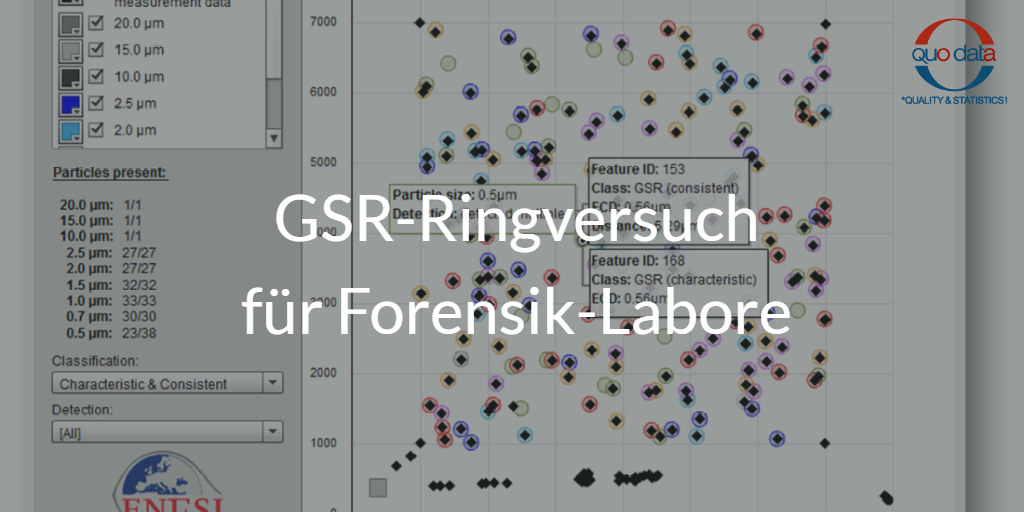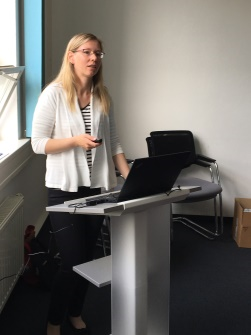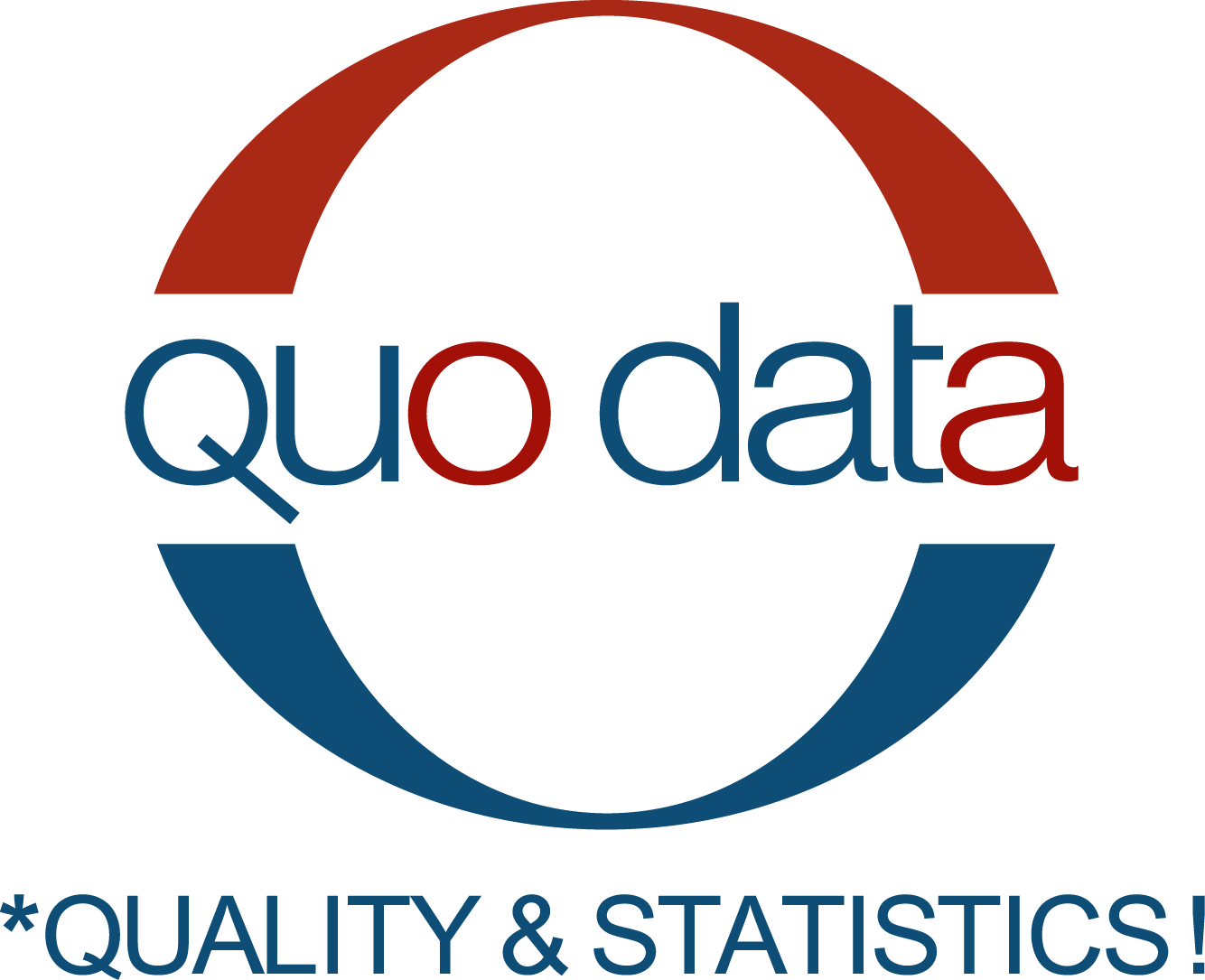QuoData News
From 9 to 13 September 2019, QuoData’s head of IT, Christian Bläul led two in-house training courses on the use of the QuoData flagship software “PROLab”, which is developed specifically for planning and evaluation of proficiency tests (PT) during his visit to Toronto, Canada.
As part of QuoData’s ongoing efforts to improve quality assurance and performance assessment of laboratories through proficiency testing, QuoData participated at PT Conf in Oradea, Romania, taking place from September 10th to 13th.
The seventh international proficiency testing conference brought together an important and vital group of researchers and PT professionals. It also provided QuoData with an opportunity to meet face-to-face in order to share knowledge and insights with other experts.
QuoData is thrilled to kickstart a new project called HERMES (Highspeed Erfassung und Regelung Mikrophysiologischer Eigenschaften mit einer intelligenten Steuerung), along with the Fraunhofer Institute for Material and Beam Technology (IWS), the Medical Faculty of TU Dresden (Institute for Pharmacology and Toxicology) and
The QuoData experts actively participate in upcoming international conferences. After the ArabLab in March and the Eurachem Workshop in May, further contributions are planned for which preparations are underway: analytica Lab Africa (in Johannesburg, South Africa), IAFP 2019 (in Louisville, Kentucky, USA) and the International Proficiency Testing Conference (PT conf, in Oradea, Romania).
From May 20th to 21st QuoData’s Data Scientists will be in Tartu, Estonia, for the Eurachem Workshop 2019 to present one of its latest research projects in the field of non-targeted methods.
QuoData's IT experts appreciate the Drupal content management system and framework and use it for a variety of unique web applications. Drupal is open source and thrives on the commitment of many software developers who continue to develop it further.
On behalf of the European Network of Forensic Science Institutes (ENFSI), international proficiency tests for the identification of gunshot residues (GSR) have been carried out for many years.
Since 2009, QuoData has been organizing and evaluating the annual proficiency tests of the GSR quality system on behalf of ENFSI independently.

QuoData's Data Scientists regularly share their knowledge and experience in planning and conducting method validation studies. Therefore QuoData offers individual in-house workshops and trainings. Topics, training materials and examples are always adapted to the needs of the participants.

Drupal Global Contribution Weekend took place in Dresden from 25 to 27 January 2019. It was a great pleasure for the entire QuoData team to host Drupal developers from across Germany for this event, which took place simultaneously at 23 locations worldwide.
Over the weekend, 13 developers came together to learn from each other and to enhance the existing Drupal framework, which is used for many QuoData web applications.
Quality assurance officers and scientist that want to broaden their knowledge of method validation and want to exchange with experts should consider joining QuoData’s upcoming InterVAL workshop.
- QuoData führte vom 28. bis 30. November 2018 einen dreitägigen Workshop im Auftrag der US Food and Drug Administration (FDA) und des Institute for Food Safety and Health (IIT Chicago) in Chicago, USA durch.
QuoData conducted a three day workshop from November 28 to 30, 2018 under the aegis of US Food and Drug Administration (FDA), and Institute for Food Safety and Health (IIT Chicago); in Chicago, USA.
This was the first part of a series curated by QuoData to train microbiologists, food safety professionals and scientists from testing laboratories, industrial and research institutions, and regulatory agencies.
- Mit der wachsenden Anzahl von qualitativen Analyseverfahren steigt auch der Bedarf bezüglich Methodenvalidierung. Für die Schulung von wissenschaftlichen Mitarbeitern aus Prüflaboren, Industrie- und Zulassungslabors im Bereich der Mikrobiologie hat die QuoData für die U.S. Food and Drug Administration (FDA) einen dreitägigen Kurs entwickelt, der sich mit der Validierung qualitativer mikrobiologischer Methoden befasst.
The need for method validation in terms of experimental design, data analysis, performance evaluation and competence determination is increasing with the growing number of available methods for qualitative analyses.
To train microbiologists, food safety professionals and scientists in testing laboratories, industrial and research institutions, and regulatory agencies, QuoData along with the US Food and Drug Administration (FDA), and Institute for Food Safety and Health (IIT Chicago); have developed a three-day course on validation of qualitative microbiological methods.
If you would like to deepen your knowledge in the field of analytical quality assurance, you can do so at QuoData’s upcoming workshop on interlaboratory studies:
Workshop for the evaluation of proficiency tests and method validation studies with PROLab
QuoData regularly attends events of the scientific community all over the world to present novel approaches for analytical quality assurance and establish further contacts.
132nd AOAC Annual Meeting & Exposition: 26 - 29 August 2018
At this meeting in Toronto, Canada, leading scientists met to discuss a variety of analytical requirements and new standards in the field of quality assurance. The CEOs of QuoData were also present.
The standardization process of A-YES (ISO 19040-2 "Water quality - Determination of the estrogenic potential of water and waste water - Part 2: Yeast Estrogen Screen (A-YES, Arxula adeninivorans))" has been completed.
For this reason the A-YES test procedure is a valid ISO standard for measuring the estrogenic potential of water and it is commercially available in various A-YES® test kit versions at new_diagnostics.
In August and September QuoData will participate in two events.
There QuoData's Data Scientists will present new solutions for analytical quality assurance, in particular for interlaboratory tests and method validation studies, which are based on tailored mathematical-statistical approaches and powerful web tools.
Fourteen participants deepened their understanding of interlaboratory studies during the workshop from 13 - 15 June 2018 held in Dresden.
This international Round Robin Test provided participants with information on their performance in emission tests according to the GEV Testing Method. This is used to determine volatile organic compounds for the characterisation of emission-controlled substances (e.g. adhesives, building products, mineral soils). In addition, the study allows a statement on the variability of the test results when using the GEV Testing Method in different testing laboratories.
In addition to the development of software and concepts for analytical quality assurance, QuoData also provides individual in-house workshops and training. Topics, training materials and examples are always adapted to the field of application of the participants.
From 23 to 24 May 2018, QuoData held a two-day in-house training course on the validation of analytical methods and DIN EN ISO/IEC 17025:2018 based on practical examples on behalf of one of the world's leading providers of solutions for the healthcare market.

